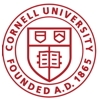Over 72 percent of all hotels in the United States are affiliated with large brands like Marriott, Hilton, IHG, and Hyatt. In contrast, the largest operator in the short-term rental (STR) market, Vacasa, manages less than 1 percent of the total market. With around $53.5 billion in gross booking value, or about 25 percent of the entire U.S. lodging industry, the STR market presents an enticing consolidation opportunity.

Over 72 percent of all hotels in the United States are affiliated with large brands like Marriott, Hilton, IHG, and Hyatt. In contrast, the largest operator in the short-term rental (STR) market, Vacasa, manages less than 1 percent of the total market. With around $53.5 billion in gross booking value, or about 25 percent of the entire U.S. lodging industry, the STR market presents an enticing consolidation opportunity.
Unsurprisingly, billions of dollars have flowed into tech-enabled, asset-light STR operators in recent years to pursue this opportunity without much success to date. Over 20 years before these operators entered the market, another company, called ResortQuest, tried to consolidate the STR market and after failing to do so was eventually sold in parts to various acquirers. Despite these attempts, we believe the opportunity to consolidate exists, but that it will follow a pattern that is similar to the consolidation of the traditional lodging industry.
Part of the journey requires building strong brands and operating capabilities, but that in and of itself requires significant time and capital, especially in lodging, where distribution and, increasingly, distinctive guest experiences are paramount. Most global hotel companies originally built their brands using a capital intensive, asset-heavy approach, owning and operating the assets. Over time these hotel companies were able to spin off real-estate assets into REITs and scale the management and franchise segments faster and more cost effectively under established brands. The evolution of STRs may be similar, as capital is now flowing out of prematurely asset-light operators and into related property company and operating company structures (PropCo/OpCo) that replicate the more asset-heavy approach.
The OpCo is a venture-backed, tech-focused company with an asset-light business model. The PropCo is an in- vestment vehicle that owns the property that the OpCo’s business revolves around. The OpCo operates the assets on behalf of the PropCo.
Click here to download the complete article.